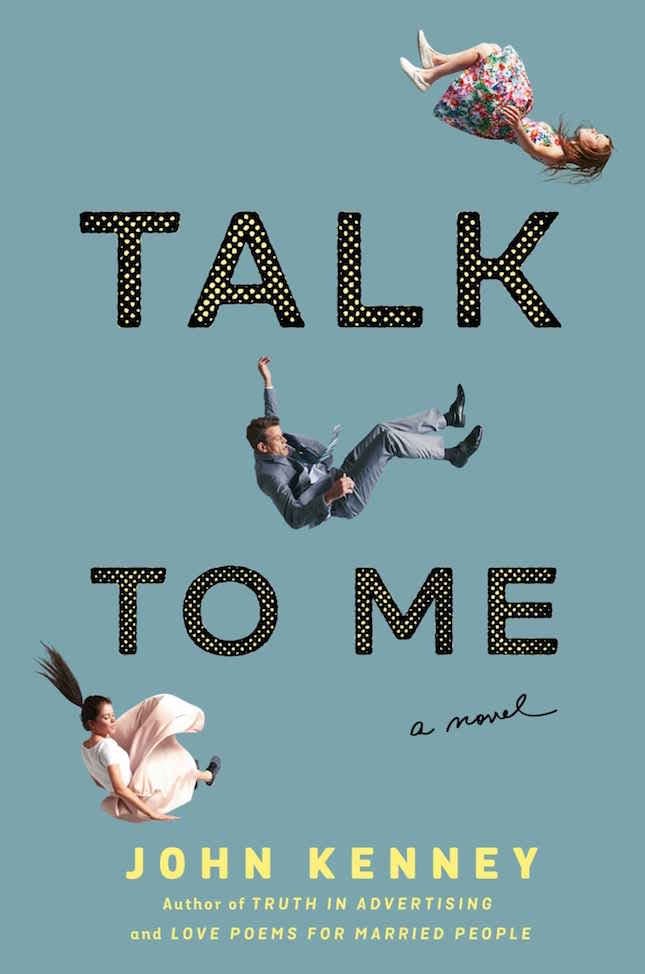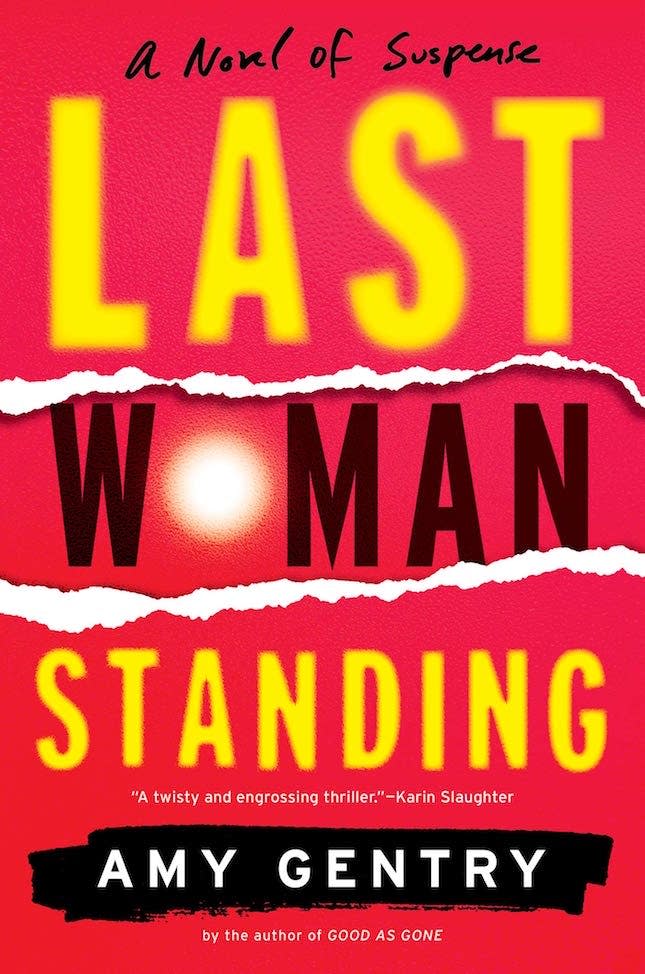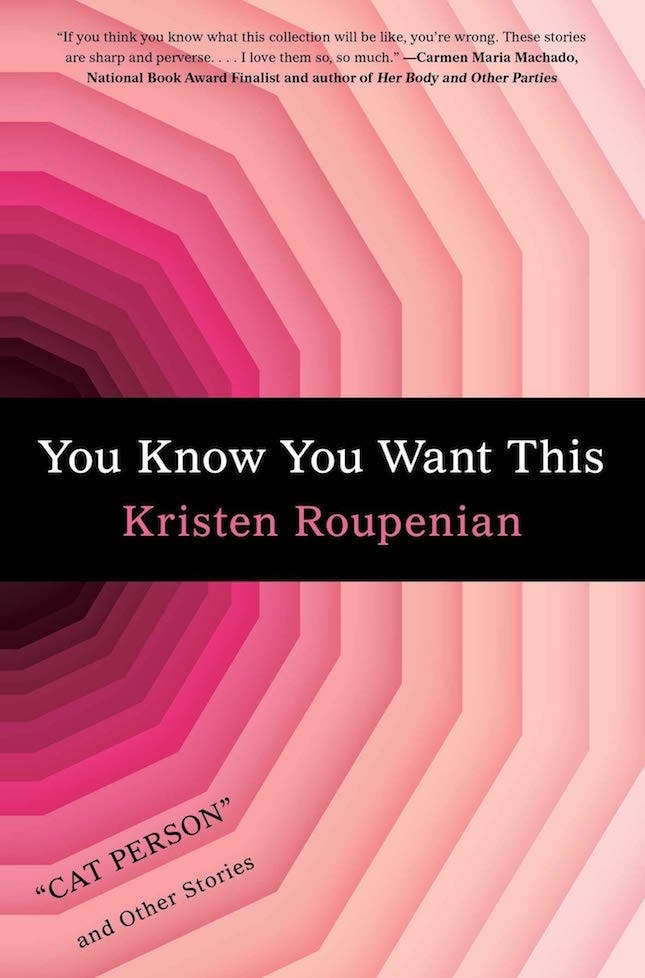3 New Books About the Dangers of Going Viral
Going viral can be exciting and terrifying at the same time, particularly if it’s not for a positive reason. It’s almost impossible to control the reaction of the internet at large, and having your face and name out there can be a magnet for praise, criticism, or out-and-out life-ending harassment. The three new books in this week’s book club have all been touched by the viral phenomenon. They’re all based on how the nature and trends of viral media have shaped our concepts of celebrity, activism, punishments, and justice, whether that affects the books’ characters or the authors themselves. Give them a click.
1. Talk To Me by John Kenney ($26): “He was tired of the shame. Tired of the deep sadness for the loss of his life. Of everything that had once seemed to make sense and now didn’t. He was tired of being afraid of what would happen next, of what other public embarrassment would come his way. He had lost something vital to the living process that he was unable to name. He heard the lead-in in his head. Ted Grayson, the longtime anchor of the evening news, died today in an embarrassing skydiving accident on eastern Long Island. Sources say the disgraced former newsman may have taken his own life. He was fifty-nine. (brief pause) When we come back: peanuts. Are they the new superfood?”
Ted Grayson begins the book by jumping out of a plane with no intention of opening his parachute. You could see it as a metaphor for the direction his life has recently taken. Ted had been a beloved, trusted news anchor for decades, cultivating a respected reputation among his fans, while letting his relationships with his family languish. He finds out that online justice is swift and brutal when, in a foul mood, he misinterprets the new make-up artist’s facial expression as mockery and launches into an angry, screaming tirade: one that’s laced with racism, and that’s caught on video. The video of his meltdown quickly hits Facebook, gets picked up around the world, and ends Ted’s life as he knows it.
Ted’s life further spirals downward due to his estrangement of his wife and daughter. His wife, Claire, moves to finally, officially end their marriage. His daughter Frances works for a media outlet that’s full of clickbaity think pieces, and her editor knows that an article condemning Ted written by his own daughter will be especially juicy. Frances has to decide how much she values her own career over her dad’s dignity. Ted, for his part, discovers what it’s like being one of the stories he’s so used to covering and dismissing five minutes later. Will Ted succeed in ending his story, or will he find the ability to change? While not excusing Ted’s reprehensible (yet uncharacteristic) behavior, Talk To Me presents what it’s like to find yourself on the other side of viral hatred.
2. Last Woman Standing by Amy Gentry ($25): Dana Diaz is an aspiring comic who’s come back to Austin from LA to compete in the yearly “Funniest person in Austin” contest, which promises $5,000 for the winner and potential agents and deals for anyone who makes it to the finals. Coming off a disappointing, preparatory set with some charged, sexist heckling, she meets Amanda Dorn, who offers a drink and a sympathetic ear in appreciation of Dana’s unflappability. Amanda was a programmer for an app; an attractive blonde, she was blacklisted from Silicon Valley after reporting her dick-pic-sending boss, and when her story hit social media, she was doxxed and swatted (her contact information made public and a dangerous SWAT team maliciously called to her door). Like Dana, she also moved to LA, but did so to “disappear,” and had to flee again in the wake of a jealous, controlling ex.
Dana has lacked female friendships all her life, due to a fear of the intimacy they seem to demand. But she finds herself drawn to Amanda due to her intensity and their similar stories. Dana was drugged, sexually assaulted, and harassed during her time in LA, by a comic who just happens to be a first-round judge in the Austin competition. Amanda has a plan — they should each punish the other’s abuser, using both social media and potentially more violent means. Having reached something of a breaking point, Dana’s in — until a chance at career success makes her pull back and wonder if it’s worth it. Inspired partially by the revolution occurring in the entertainment industry (Dana’s assault story is eerily reminiscent of Louis CK), this is a revenge potboiler for the #MeToo era.
“Amanda leaned forward, suddenly fierce, and wrapped her skinny fingers around my wrist. ‘Listen, Dana,’ she said. ‘I know what it’s like to be driven out of town, lose your livelihood, your self-respect, everything. I let my ex lock me up and tell me I was worthless. He wasn’t even good-looking.’ She chuckled, but it was a grim, unpleasant sound. ‘I would never have given him the time of day if I hadn’t felt dead inside. But I’m not dead. I’m still here. And so are you.’ Her eyes burned drunkenly, and her knuckles pressed into my wrist bone. ‘Whatever happened to you in L.A., you’re not dead. The person who did it to you is the one who should feel that way, not you.’”
3. You Know You Want This by Kristen Roupenian ($25): Roupenian herself is an internet star who learned the perils of social media. Her controversial and hotly debated short story, “Cat Person,” about the set of cultural expectations that often leave young women feeling unable to refuse a sexual encounter after its initiation, went viral after it was published in The New Yorker at the end of 2017. That story, and several others, are included in Roupenian’s new collection of short fiction. (Emphasis on fiction: Many readers assumed “Cat Person” was autobiographical, to Roupenian’s dismay. It was not.) The collection, which dwells on the monstrous, twisted aspects of humanity and human interaction, begins with a story of a couple who inadvertently invite a friend, depressed after a break-up, into an uneasy, semi-permanent role in their lives and relationship:
“Our friend came over the other night. He and his terrible girlfriend had finally broken up. This was his third breakup with that particular girlfriend, but he insisted it was going to be the one to stick. He paced around our kitchen, working his way through the ten thousand petty humiliations and torments of their six-month relationship, while we cooed and fretted and bent our faces into sympathetic shapes in his direction. When he went to the bathroom to collect himself, we collapsed against each other, rolling our eyes and pretending to strangle ourselves and shoot ourselves in the head. One of us told the other that listening to our friend complain about the details of his breakup was like listening to an alcoholic whine about being hungover: yes, the suffering was there but good God it was hard to muster sympathy for someone with so little insight into the cause of his own problems.”
Other stories include “Sardine,” about an 11-year-old girl who magics up a monster with a birthday wish; “The Good Guy,” about Ted, whose relationships with women are somewhat less nice than he thinks he is; and, of course, “Cat Person,” the story that started it all. As Roupenian wrote about her new book in a follow-up New Yorker article, “I’m hoping that the number of monsters and murderers in its pages will put at least some of the autobiographical questions to rest.” Let’s hope for success – but maybe not viral success.
What books make you want to “share”? Tag us in your next viral read @BritandCo.
Brit + Co may at times use affiliate links to promote products sold by others, but always offers genuine editorial recommendations.





